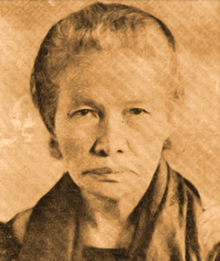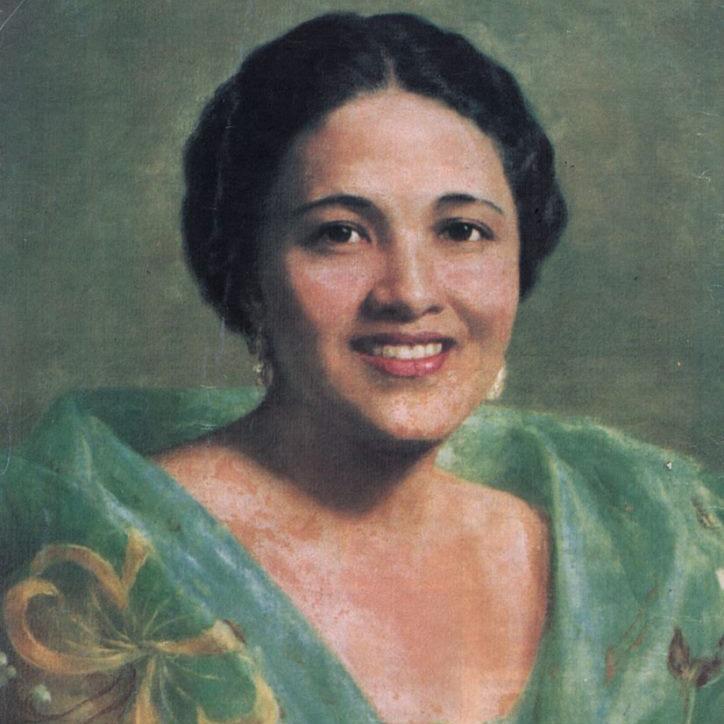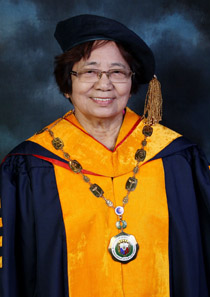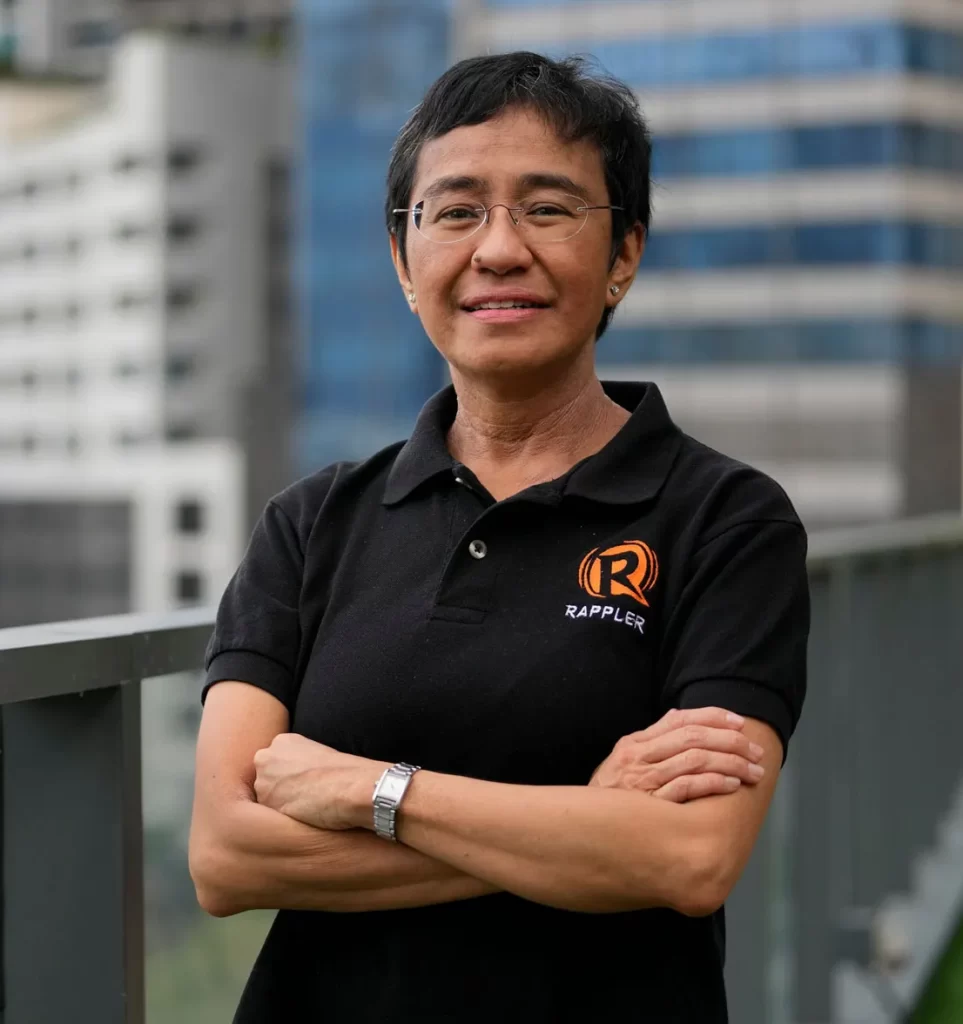- The Cebuano Memoriam
- August 28, 2023
- Jared Zion Muaña and Maria Morala
- visuals byMel Francis Amadora, Samuel Mendez II
We all know our Filipino heroes: Jose Rizal, Andres Bonfiacio, and Lapu-Lapu. We’ve read about their stories and their impact on Philippine history. We study their achievements, celebrate their holidays, and soon we will be telling our children and their children about them. There’s no denying that these men have had an incredible impact on Philippine history, yet there’s one glaring issue that all these men possess.
They’re all men.
History is often written by the victors, and most of the time, men. Filipino women’s achievements and impact on history are often sidelined by their male counterparts. Filipino women have been pillars of different eras of Philippine history; they’re warriors, generals, revolutionaries, monarchs—they’re so much more than side characters in the stories of male heroes.
Today, let’s honor some of the Filipino women throughout history and the different forms of heroism they have shown throughout their lives.
“The situation in a country at a particular time creates its own breed of heroes and heroines.” — Teresa Magbanua
We’ve seen the great military generals of history. Ghenghis Khan of Mongolia, Alexander the Great of Macedonia, Napoleon of France—the category is so filled with men and their stories of conquest, but the story of Teresa Magbanua is not a story of military might and impressive armies, but a story of strategic wit and the hero’s journey of an underdog rising to the status of a great leader cemented in Filipino history.

Teresa Magbanua, taken by unknown
Born in Iloilo to a wealthy and socially prominent family, Teresa Magbanua is often referred to as ‘The Visayan Joan of Arc’, a title given by Filipino historian Gregorio Zaide in his biography about her. After completing her education in Manila, she became a teacher until 1894, when she married a farmer. She quickly adapted to farm life, teaching herself how to ride and shoot, both skills beneficial to her once she became a revolutionary.
When Iloilo became involved in the revolution in 1898, Teresa Magbanua, like her two other brothers, attempted to become a general for the revolutionary forces. After overcoming the resistance of both the local military commanders and her husband, who was opposed to her revolutionary activities, she was finally given an army. After her first victory in the Battle of Yating, she continued to show her courage, intelligence, and strategic prowess. Her image of gallantly riding into battle on her white horse inspired even her most injured and ragged soldiers to victory over the Spanish occupation in Iloilo. Even when all the odds were against her during the Spanish dispatch at Sap-ong, she still led her troops to the eventual victory, her soldiers triumphantly marching back to Jaro after revolutionary forces gradually took over Panay. Even after the American infiltration in Panay, she refused to surrender and commanded guerilla forces as a form of resistance. She remained a fighter for Philippine independence until her retirement and death in 1947.
An underdog story of a school teacher turned military strategist. Even with the impressive and great armies of the Spanish, Teresa Magbanua outwitted her enemies and brought victory to her armies and her people. This National Heroes Day should remind us that being a hero isn’t defined by our brute strength but by our bravery, resilience, and intelligence. All of which is what cemented Teresa Magbanua as both a military powerhouse and a heroine of Philippine history to be remembered.

Josefa Llanes Escoda, taken by unknown
JOSEFA LLANES ESCODA
“Tell the people that the women of the Philippines did their part in making the ember sparks of truth and liberty alive til the last moment.” — Josefa Llanes Escoda
A person who is willing to give is worth thousands of dimes. In the scenes of World War II, thousands of our Filipino countrymen were enslaved, imprisoned, and killed. The injustice and mistreatment led these poor people to pain and hopelessness. However, a little light shines through the misery in the shades of black. How can a young woman be kind and giving despite such a harsh and violent reality? A young woman who is willing to aid those who are sick and who would take the risk to sneak innocent prisoners out just to reunite them with their families.
This young woman is Josefa Llanes Escoda, a true leader with a pure heart. Her career started off as a social worker, but she was also an advocate for women’s rights. Josefa was also the founder of the Girl Scouts of the Philippines. As World War II started, destruction and chaos followed. People were only left silent with hopelessness and screams of unending pain. People who have died and have done nothing but try to live, even barely. But Josefa did what she could with her willingness and determination. She did not wait around in silence, but rather she helped everyone in silence. The Japanese soon found out and executed her, leaving behind her legacy and infamous story.
Josefa is a leader who does not just lead but also serves. She became the voice of the people’s silent screams. This shows how women are brave and willing to stand for what is right and just. This National Heroes Day should remind us that there are simple people who are willing to sacrifice their lives. Not only with the thought of sacrificing because it is worth dying, but rather because it is worth saving. And for Josefa, she believes that the future of her countrymen and Filipina women is worth saving for many more generations.
DOLORES RAMIREZ
“I’m also a product of somebody else’s mentoring, so I’m sincerely part of the chain. There are many students, such as my students, for example, who have widened the scope of what I’ve done.” — Dolores Ramirez
When we think of heroes, we often think of those in the past. Legends of history that fought valiantly against forces of evil. But some heroes still walk among us today; some don’t even fight. Heroes come in all forms, and even in times of peace, a hero can emerge as a contributor to the progress of their country.

Dolores Ramirez, National Academy of Science and Technology.
Dolores Ramirez is not who we think of when we think of what a hero represents. She wasn’t a military general or vigilante; she wasn’t a story from a legend long before; and she wasn’t strategic in battle or combat. Yet as she stands posing for her cover of Vogue at 91 years old, surrounded by flowers all named after her, all her accomplishments in the fields of science and agriculture listed out in an article highlighting her as a trailblazer and pioneer of her field, it’s hard not to herald her as a hero of scientific progress.
Born in 1931, Dolores Ramirez is the eldest of her eight siblings. Excelling in academics at an early age. Inspired by the early death of her father, she continued to achieve academic excellence even with the struggles of her family. Her mother was unable to complete secondary level education, and even with their lack of resources, she encouraged and did whatever she could to help Dolores in her studies. After graduating with first honors, she studied at the University of the Philippines Los Baños College of Agriculture, originally for agricultural chemistry, but was persuaded to switch to plant breeding, and rightfully so as she excelled. Even as she excelled in her academics, she wasn’t without challenges. In a class of 300, only 20 of the students were female, and Dolores had to fight twice as hard as a woman in a male-dominated field, often told that her specialties weren’t meant for women or to transfer to a more female-oriented field like nursing by her chauvinistic male peers. Though this only pushed her to dedicate herself to plant breeding even more to prove them wrong,
And to prove them wrong she did, as in 1998 she was awarded the title ‘National Scientist of the Philippines’. Her contributions to the fields of agriculture and plant breeding have brought her worldwide recognition as a trailblazer in the field. With numerous publications, awards, and even two flowers named after her, Dolores Ramirez is an inspiration to all women in academia who strive to break through in a still disproportionately male-dominated field.
This National Heroes Day, we should be reminded that a hero is someone who is extraordinary even in the face of adversity. Dolores Ramirez has become a pioneer in the field of agriculture even with her humble beginnings and the prejudice she experienced, and she should remind women to cement themselves and take up space in places, even when society tells them they shouldn’t.

Maria Ressa. Photo from Britannica.
MARIA RESSA
“She is five feet two inches, but she stands taller than most in her pursuit of the truth.” — Amal Clooney
A life as a journalist holds a thousand risks just to bring out the truth and facts that people deserve to know. Some of us would know that there are a few journalists who would not dare speak what is true. They are scared of the consequences and possibilities of feeling a gun right at their temple if they ever publish the secrets that have been covered up with continuous lies. However, we never knew how there were thousands of journalists who fought for the truth and dared to speak up—and most of them ended up battling against the government until their last breath. Maria Ressa was one of them—a fighter for the truth and for the people.
Maria Ressa has been a journalist through many journeys. She made her career at CNN, running two bureaus in Southeast Asia, and co-founded Rappler, a digital media company for investigative journalism. After years of working as a journalist, she stood out as a lover of the truth. Determined and passionate to speak up with the facts and what is true, their job was to tell the truth. Through Rappler, they exposed government corruption, manipulation, and human rights violations.
But because of this, the Philippine government was dissatisfied with the roaring news, which was shared all over the internet and in the country. Rappler was then revoked with its operating license, Maria was thrown into dozens of harassment and hate incidents every day, and she faced a number of lawsuits and imprisonment. Earlier this year, victory was in her hands against the many challenges and life-threatening encounters she faced, declaring “today, facts win, truth wins, and justice wins.” Maria believes that as we live in this world, we must have the willingness to create and envision a world that is more equal, compassionate, and sustainable. It should be a safe world, especially for the ones who are voiceless and blind.
As the famous quote goes, not all heroes wear capes. Some use their voices as their weapons—willing to sacrifice just to protect the weak, the silenced, and the suppressed. May we not forget to honor the women who also fought and endured, who remained on the margins of history and whose stories are often unsaid and unheard. Breaking the gender norms and wrestling the oppression of how a hero is defined.
Everyone is capable of being a hero.
Take the chance to read more about the women in Philippine history, for their stories are sure to inspire heroism within you.
ABOUT THE AUTHORS
This is hard to talk about but it needs to be said that this one is for the boys with the boomin system top down ac with the coolin system
After 20 years of my life, I finally know what I want in the future.


